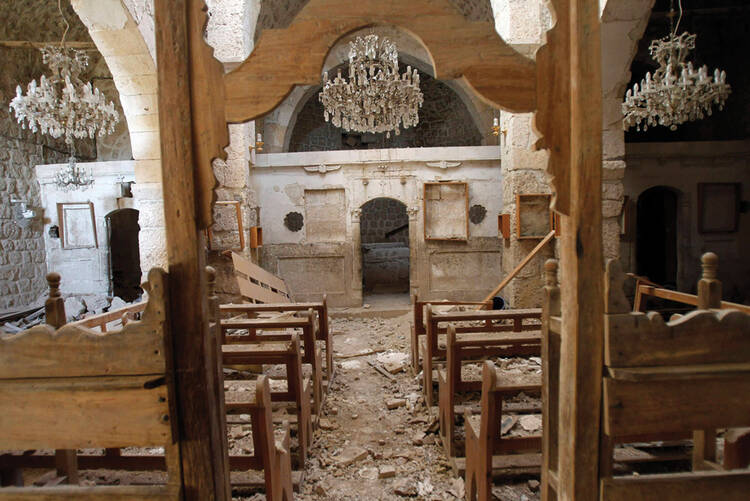In April the sultanate of Brunei became the first East Asian country to introduce the criminal component of Shariah law at the national level, raising concerns among Buddhist and Christian minorities. • Palestinian Christians welcomed the agreement between rival political factions Fatah and Hamas to form a national unity government. “The division among Palestinians was a factor that weakened the peace process,” according to the Rev. Raed Abusahlia, general director of Caritas Jerusalem. • The European Union border agency reports that over half of the immigrants who entered Europe illegally in 2013 made the final perilous border crossing by way of the sea. • Eight countries, including Syria, Pakistan and Egypt, should be added to the State Department’s list of the worst religious freedom offenders, according to the U.S. Commission on International Religious Freedom. • In response to Pope Francis’ call “to go to the outskirts of existence,” Sister Maria Nazareth of Argentina is preparing to go to the war-torn city of Aleppo. • Christians fear that the demolition of a massive church in Wenzhou, a Chinese coastal city known as the “Jerusalem of the East,” may signal an intensified campaign against religious organizations by local Communist authorities.
News Briefs
Show Comments (
)
Comments are automatically closed two weeks after an article's initial publication. See our comments policy for more.
The latest from america
Over 20 years ago, I was a college student who didn’t want to return to an unstable home. So instead, I found a job as a lifeguard at a Christian summer camp in the Texas Hill Country.
Although the IRS recently allowed religious organizations to address their faithful about electoral politics, the Church will not speak on specific candidates.
“We must pray for the conversion of many people, inside and outside of the church, who still do not recognize the urgency of caring for our common home,” Pope Leo XIV said while celebrating a new formulary of the Mass “for the care of creation.”
No one ever expected a U.S.-born pope. In this first-ever I “Inside the Vatican” Deep Dive series, those who know him best reveal who Pope Leo XIV—“the American pope”—really is. In Episode 1, we hear from the genealogist who uncovered his Louisiana roots, a teacher, and fellow Augustinian friars








